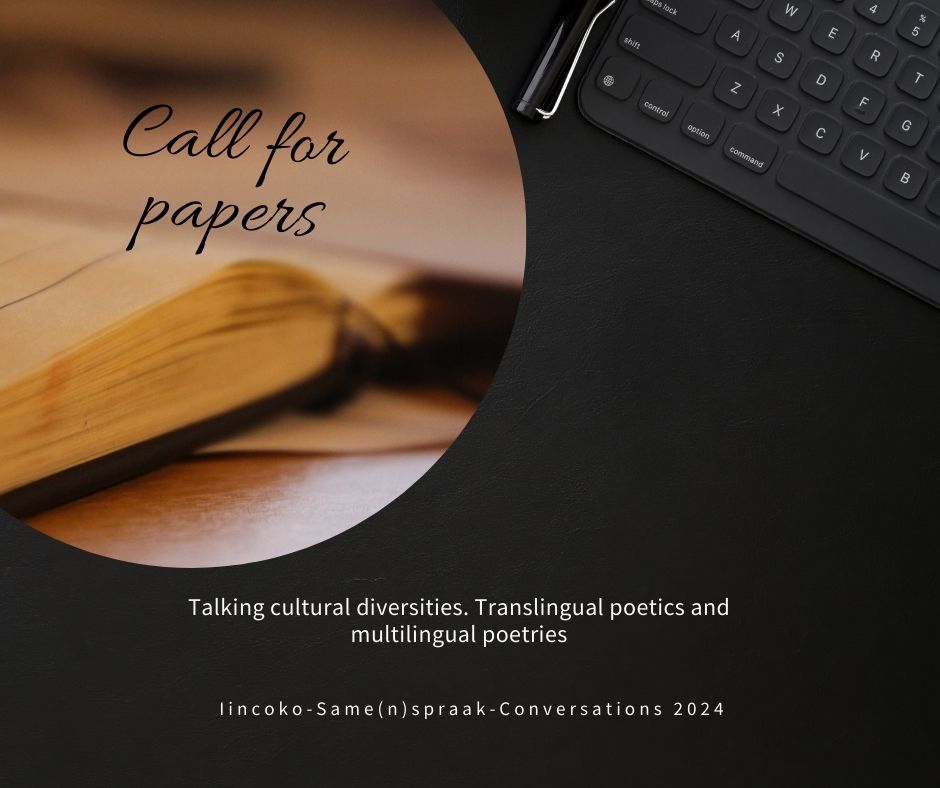Call for Papers: Talking cultural diversities. Translingual poetics and multilingual poetries

There are examples of literary texts in South African multilingual literature that should be read in the context of “translingual poetics”. The very interweaving of Standard Afrikaans and other varieties of Afrikaans is an example of language mixing that carries different cultural narratives or frames than is assumed in a normative unified language or hegemonic culture. In a South African context, it is evident that there are more such language combinations – combined forms of language expression. The interaction of Afrikaans, English, Xhosa, Zulu, and other languages is evident in a multilingual and multicultural country and a locus where languages are in constant contact. Literature can further activate and thematize these language contacts and forms of trans- and/or interculturality. Attention to literary mediums and specific cultural traditions in various languages opens up perspectives on a linguistic and cultural community. In addition to translations of foreign-language literature in South Africa or production reception, the transfer and knowledge of literature (through diverse ways/modes of communication) play a role in the linguistic and cultural rapprochement between various ethnocultural communities.
With this call for papers, we invite researchers who focus on such forms of “multilingual poetics” and “transpoetics” in a South African context. The papers are presented in English, and the PowerPoint presentations can use either Afrikaans, English, or any other source language. In particular, researchers from diverse cultural traditions in South Africa are invited to discuss research findings in the context of multilingualism and intercultural conversations in an online seminar.
Please send the working title of your paper to Prof Alwyn Roux (erouxap@unisa.ac.za) before or on Wednesday, 14 February 2024. Also indicate when you would like to present your research. Please see the possible dates below:
|
Date |
Session 1 - Presentation |
Session 1 - Q&A |
Session 2 - Presentation |
Session 2 - Q&A |
|
28 February |
10:00 - 10:20 |
10:20 - 10:30 |
10:30 - 10:50 |
10:50 - 11:00 |
|
27 March |
10:00 - 10:20 |
10:20 - 10:30 |
10:30 - 10:50 |
10:50 - 11:00 |
|
20 April |
10:00 - 10:20 |
10:20 - 10:30 |
10:30 - 10:50 |
10:50 - 11:00 |
|
29 May |
10:00 - 10:20 |
10:20 - 10:30 |
10:30 - 10:50 |
10:50 - 11:00 |